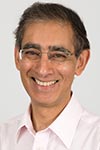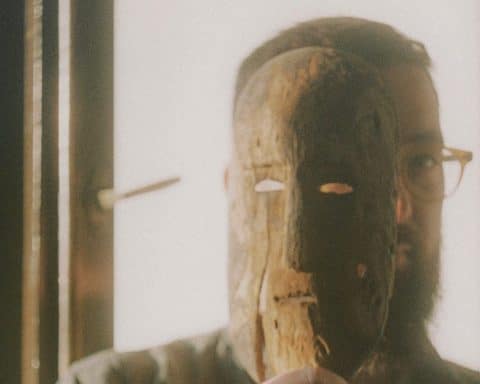 Amar Rughani is a retired GP from Sheffield and leadership mentor and is currently Provost of RCGP SYNT. He is on Twitter: @AmarRughani
Amar Rughani is a retired GP from Sheffield and leadership mentor and is currently Provost of RCGP SYNT. He is on Twitter: @AmarRughani
My mother-in-law, Grannie as she was known to us, taught me a lot. I learned (again, but how quickly I forget) that empathy is no substitute for reality. Just as becoming a parent made me understand why a child up all night with earache is a family emergency, not a medical irritation, becoming a carer for Grannie showed me how the barbs are part of the beauty of love. I had cared about parents and carers before of course, even foolishly thought that I understood them, but the reality was so much richer than I had imagined. So it was with retirement. Being close to it helped me see what is was, but not understand why it was. I could see the edifice, but not the purpose.
My wife, as so often, helped me without even knowing. Sue, a much better GP than myself, had patients queueing round the block in the rain when she retired to say how much they loved her for how she cared for them. She gave such personal continuity that it became unsustainable and I daren’t tell you what time she got home at night. She couldn’t cut her cloth, become more efficient or however else you want to say ‘give patients less time’ because to do so would have taken away what made her work meaningful. Sue used a phrase that really struck home when she said was leaving because ‘My era has passed’.
The penalty that we pay as doctors in prescribing for the living, is that our living is prescribed for us.
The penalty that we pay as doctors in prescribing for the living, is that our living is prescribed for us. We sacrifice our person on the altar of our persona and are happy to do so, fuelled by the motive of living up to what is expected of us. And then comes retirement when if we are fortunate, we have the scary prospect of directing how we use our time. Let me share, from my experience, a couple of realisations with you.
From schooldays I remember that the Welsh poet WH Davies said “What is this life if, full of care, we have no time to stand and stare?” It was a line that held little interest for me before, as I was enjoying being busy. Perhaps it was also because of the quality of my stare; what I couldn’t or wouldn’t see. Now, Davies means more to me because I stare less blankly than I did and I savour each day and savour each relationship. At times I may be brisk, but I’m not hurried.
The insight that we gained through helping patients experience better health can now help us all to live better lives.
Ours is a great community. A sign of that is that I am encouraged to write some reflections and that you, if you’ve got to this point, are interested to consider them. That’s amazing and shows that we share a journey of the spirit, which in itself connects us to an even greater community. I look back with thanks, but forward with both compassion for the world and belief in our ability to be better than this. And in a deeper parallel, just as we as individuals consider our era, our transitions and re-birth, so must a profession consider its own, prompted by time or the times, to move on.
To me, retirement from one phase is the gift of entry to the next, where the insight that we gained through helping patients experience better health can now help us all to live better lives.
I wonder what it is for you?
Featured photo by Illiya Vjestica on Unsplash






